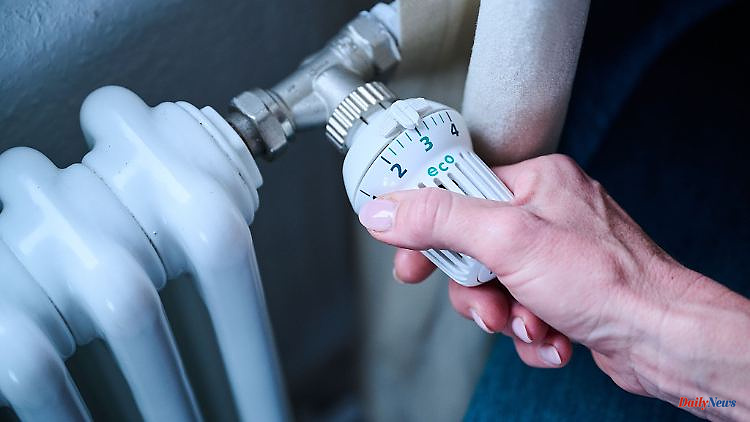Starting this year, landlords may only pass on the full CO2 costs of heating with fossil fuels to their tenants in a few cases. But are they doing it right?
Anyone who heats their home with fossil fuels has been subject to the so-called CO2 price since 2021. The following applies: the higher the consumption, the more you have to pay. Owners of properties they use themselves pay the fee directly with the heating costs to the utility company, while tenants usually get it added to the ancillary costs. Because the CO2 price will continue to rise in the future, the use of fossil fuels will become more and more expensive. The goal behind it: to motivate more people to refurbish their property to make it more energy-efficient.
The crux of the matter: So far, landlords have been able to pass on the entire CO2 price to their tenants. Their incentive to change the heating system or thermal insulation was therefore manageable. The tenants, on the other hand, were more or less at the mercy of the CO2 price. They could only influence the amount of their bills through their own heating behavior.
Since the beginning of the new year, landlords have no longer been able to pass the CO2 price on to their tenants in every case. This is only possible if your property meets particularly high energy standards (EH 55). The poorer the energy quality of the building, the higher the share of costs that landlords have to bear - up to 90 percent. This applies to billing periods from January 1, 2023.
This will not change anything for owners of properties they live in - they will continue to pay the full CO2 price alone in the future. But what should tenants know for their future utility bills? Answers to important questions:
How is the CO2 price calculated at all?
Because CO2 is released when a fossil fuel is burned, dealers and producers have had to buy so-called emission certificates from the German Emissions Trading Authority of the Federal Environment Agency since 2021. They pass these costs on to consumers according to consumption.
The certificate per tonne of CO2 emitted costs 30 euros this year. By 2026, the price should gradually increase to at least 55 euros. From 2027, the price should be free on the market. Because the supply of emission certificates is to be gradually reduced, a further price increase is to be expected.
How can tenants check whether the landlord is complying with the new cost-sharing rule?
According to the new regulation, landlords must state the specific CO2 emissions of their building in kilograms of carbon dioxide per square meter of living space on the annual heating bill. "This value is then used to classify into one of ten levels that determine which party has to bear which share of the CO2 costs," says Florian Munder, energy expert at the Federal Association of Consumer Organizations.
Tenants can check whether the landlord or landlord has made the classification correctly by comparing it with the level model of the Federal Ministry of Economics. If you want to check whether the specific CO2 emissions have been calculated correctly at all, you can request an inspection of the receipt from your landlord.
"The energy supply companies are obliged to provide the necessary information on the CO2 value of their delivery in their invoices," says Munder. Dividing the total CO2 value by the living area of the building gives the specific CO2 emissions.
What can tenants do if the landlord does not implement the new requirements for cost sharing of the CO2 price?
If a landlord does not determine the share of the CO2 costs attributable to the individual tenants, they would have the right to reduce the heating bill by three percent, according to energy expert Munder.
If landlords have made the wrong allocation, tenants should first seek dialogue. If an agreement is hopeless, the advice centers of the consumer advice centers can be a good place to go.
What applies to tenants who provide themselves with heat - for example with gas heating?
In this case, tenants pay the CO2 tax directly and in full to the supplier. If the landlord has to bear part of the costs according to the tiered model, he must reimburse the share of the costs he has to bear. "Tenants must assert this claim for reimbursement in text form within twelve months of receiving the bill from their energy supply company," says Florian Munder.
If the parties have agreed on an advance payment of operating costs, the reimbursement amounts can be offset as part of the next annual operating cost statement. If there is no billing of operating costs or no offsetting, landlords would have to reimburse the amount no later than twelve months after notification, according to Munder.












